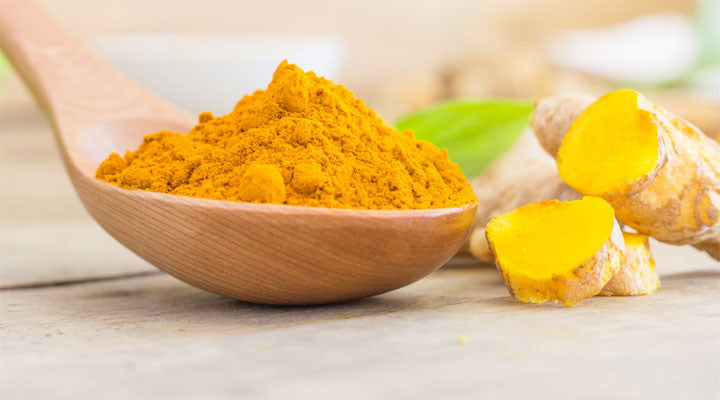The Ultimate Guide to Turmeric Supplements: Benefits, Dosage, and Tips

Turmeric supplements, often revered as a golden elixir in traditional medicine, have skyrocketed in popularity worldwide. Primarily derived from the turmeric root, these supplements harness the potent compound curcumin, known for its anti-inflammatory and antioxidant properties. This comprehensive guide unpacks the most important aspects of turmeric supplements so you can better understand their benefits, optimal dosage, and usage tips to maximize wellness.
Understanding Turmeric, Curcumin, and Their Relationship
Turmeric is a bright yellow-orange spice widely used in Asian cuisine and traditional medicine. Its therapeutic qualities stem mainly from curcumin, a natural polyphenol responsible for turmeric’s vivid color and health-promoting potential. However, it is critical to distinguish between turmeric and curcumin when considering supplements. While turmeric root powder contains only about 2-5% curcumin, most medicinal benefits are tied to concentrated curcumin extracts.
Therefore, a turmeric curcumin supplement typically provides higher amounts of curcumin separated and standardized from the turmeric root. Understanding this distinction is vital to evaluating different supplement products effectively, especially when investigating claims supported by scientific research. The term Curcumin vs Turmeric often surfaces in discussions highlighting bioavailability and health impacts of each.

Health Benefits of Turmeric Curcumin Supplement
The list of turmeric curcumin supplement benefits is extensive, backed by numerous scientific studies and clinical trials. Chief among these is its potential to modulate inflammation—a key factor in many chronic diseases such as arthritis, heart disease, and neurodegenerative disorders.
Curcumin acts as a powerful antioxidant, neutralizing free radicals and enhancing the body's own antioxidant enzymes, thereby reducing oxidative stress. Its anti-inflammatory effect is achieved through the downregulation of molecules like NF-kB, which play a major role in chronic inflammation pathways.
- Anti-inflammatory Effects: Curcumin supplements have shown to ease symptoms of arthritis and inflammatory bowel disease by reducing joint swelling and pain.
- Antioxidant Protection: Protects cells from oxidative damage, potentially reducing the risk of cancer and aging-related diseases.
- Cardiovascular Health: Promotes heart health by improving endothelial function and lowering cholesterol levels.
- Brain Function: Supports cognitive function and may delay the progression of neurodegenerative conditions like Alzheimer’s disease.
- Improved Digestion: Facilitates digestive enzymes and may help with indigestion and bloating.
Why Choose the Best Turmeric Curcumin Supplement?
Selecting the best turmeric curcumin supplement involves more than just choosing the highest curcumin percentage. Bioavailability—the degree to which curcumin can be absorbed and utilized by the body—is notoriously low in its natural form. Thus, many high-quality supplements include bio-enhancers like black pepper extract (piperine) to significantly boost absorption.
Moreover, third-party testing and certifications, purity, absence of contaminants, and consumer reviews lend credibility when selecting supplements. For instance, references like Consumer Reports best turmeric supplement list offer trusted evaluations based on ingredient quality, effectiveness, and safety profiles. Ensuring that the supplement is standardized to curcumin content also guarantees consistent dosing.
Best Curcumin Supplement for Inflammation
Inflammation is a complex biological response that underpins many chronic ailments, making turmeric supplements a sought-after option for natural relief. The best curcumin supplement for inflammation will ideally contain a potent, bioavailable form like "curcumin phytosome" or "micronized curcumin," coupled with piperine to enhance uptake.
Clinical trials demonstrate that appropriate dosages ranging from 500 mg to 2000 mg daily can significantly reduce inflammatory markers and improve clinical symptoms. It’s also important to consider the form of the supplement—capsules, powders, or liquid extracts may offer different absorption rates and convenience factors for the user.

Optimal Dosage and Usage Tips
Turmeric supplements vary widely in formulation and recommended dosing, but research supports a daily total curcumin intake generally between 500 mg and 1500 mg to reap health benefits safely. Doses up to 2000–3000 mg per day have been used clinically with minimal adverse effects; however, starting with lower doses is wise to monitor tolerance.
Taking curcumin supplements alongside fats enhances absorption since curcumin is fat-soluble. Additionally, consuming supplements with piperine (black pepper extract) can increase bioavailability by up to 2000%. It’s advisable to follow the manufacturer’s instructions, divide doses throughout the day if needed, and ensure consistent intake for optimal results.
Safety Considerations and Potential Side Effects
Generally, turmeric and curcumin supplements are considered safe when taken within recommended doses. Mild side effects like digestive upset or nausea can occur, particularly at high doses or when taken on an empty stomach.
Certain populations should exercise caution: people on blood-thinning medications, pregnant or breastfeeding women, and individuals with gallbladder issues or kidney stones may face increased risks. Consulting a healthcare professional prior to starting turmeric supplementation is strongly advised to prevent interactions or adverse events.
FAQs
What does turmeric and curcumin supplement do?
A turmeric curcumin supplement provides concentrated compounds that exhibit anti-inflammatory, antioxidant, and other health benefits, supporting conditions such as arthritis, cardiovascular health, and cognitive function.
Is it safe to take turmeric curcumin everyday?
Yes, daily intake of turmeric curcumin supplements is generally safe when consumed at recommended doses, typically between 500 mg to 1500 mg of curcumin. Long-term studies have found minimal adverse effects, but it’s important to monitor for any individual sensitivities.
Who should not take turmeric and curcumin?
Individuals on blood thinners, pregnant or nursing women, and those with gallbladder disease or kidney stones should avoid or consult healthcare providers before using these supplements.
Are there any negative side effects to taking turmeric?
Possible side effects include mild gastrointestinal discomfort, nausea, and allergic reactions in rare cases. High doses may increase bleeding risk, so caution is advised for people with clotting disorders.
References
- Sharifi-Rad J, et al. Turmeric and Its Major Compound Curcumin on Health: Bioactive Effects and Safety Profiles
- Curcumin Supplementation and Human Disease: A Scoping Review of Clinical Trials
- Impacts of Turmeric and Its Principal Bioactive Curcumin on Human Health
- Turmeric, the Golden Spice - Herbal Medicine
